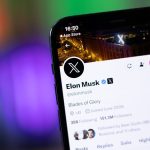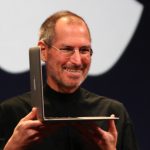
Mashable’s series Don’t @ Me takes unpopular opinions and backs them up with…reasons. We all have our ways, but we may just convince you to change yours. And if not, chill.
If you wanted to ride on the first scheduled jet flight out of the U.S., on October 17, 1958, you had to be buddies with a wealthy tycoon. Juan Trippe, founder of Pan Am, stuffed the maiden voyage of his first Boeing 707, from New York to Paris, with friends and VIPs. Given that his friends included Vanderbilts and Whitneys, this was likely the highest net worth on any plane ever at that point — unless you count that time nine years prior when Howard Hughes, billionaire owner of TWA and Trippe’s nemesis, took his famous one-mile flight on the Spruce Goose.
You can hear echoes of Trippe and Hughes’ rivalry in the jockeying between space billionaires Richard Branson and Jeff Bezos. Branson took his first flight on Virgin Galactic’s SpaceShipTwo Sunday, months earlier than planned, a week ahead of Bezos boarding Blue Origin’s New Shepard rocket. Blue Origin responded with a snarky tweet noting that New Shepard has larger windows and actually goes higher than the 62-mile-high line marking the start of space. Meanwhile Elon Musk, the other space billionaire, couldn’t resist inserting himself into the drama by surprising Branson in his kitchen at 3 a.m. and booking a flight on Virgin Galactic.
With such soap opera shenanigans, it’s no surprise many observers on Twitter rolled their eyes. The same argument deployed against the Apollo moon shots in the 1960s — space is too expensive when we have problems at home — were rolled out again. (Never mind that the Pentagon’s bloated $705 billion budget is more than eight times larger than the entire planet’s spending on space.) This time the argument came layered with an extra assumption, that the Virgin Galactic vs. Blue Origin vs. SpaceX race represents nothing more than rich boys playing with their toys.
However, that argument makes about as much sense as claiming that Juan Trippe ordered his first batch of Boeing 707s just so he could go on joyrides with his rich friends. In fact, what the Pan Am vs. TWA rivalry did in the 1950s would change air travel forever. The more Boeings they bought, the more ticket prices plummeted. The more people could afford to fly, the more service scaled up, until a trip to Paris was no longer completely out of reach for a U.S. middle-class household budget.
That’s the long-term plan for these companies’ orbital rides too, with the added challenge of building infrastructure in our solar neighborhood so that we don’t have to come back to Earth so soon. (Imagine if Trippe and Hughes also had to create Paris from scratch.) Space tourism isn’t all about providing joyrides for the rich and famous (Tom Hanks and Lady Gaga are among the celebrities who have signed up for $250,000 Virgin Galactic tickets); it’s about using that revenue as seed money for our brave new cislunar world.
I have previously argued that the space economy in the next century will mint trillions of dollars to the benefit of us all; this is how it begins. Jeff Bezos noted way back in his high school valedictorian speech that more space-based industry will take the pressure off Earth’s environment, and he was right about that. Industries like Big Pharma may do better making its products in zero G — and solar satellites can provide the entire planet with clean energy in one fell swoop. In the long run, growing the space economy might be capitalism’s single best response to our climate emergency.
Does this mean Bezos, Branson, and Musk are immune to criticism? Absolutely not. We can walk and chew gum at the same time. I’ve written about how Bezos’ wealth has turned him into a raging asshole (to his own detriment; Blue Origin might have gotten off the ground faster if he’d had a better handle on how disgruntled his employees were). Branson demanded a bailout for his airline, Virgin Atlantic, even as he furloughed its staff. And Musk, of course, seems to spend as much of his life being a Twitter troll who pisses off the cryptocurrency crowd as he does doing actual business.
It’s as clear as a space telescope that this trio of wealthy white dudes need to pay more than they are currently paying in taxes.
Meanwhile, it’s as clear as a space telescope that this trio of wealthy white dudes need to pay more than they are currently paying in taxes. Back when Trippe and Hughes were buying Boeings in the 1950s, they were on the hook for 91 cents out of every dollar over their first million. There were deductions and loopholes then as now, of course, and it’s estimated that the actual top effective tax rate in the 1950s was a less sky-high 46 percent.
Still, that was a lot more helpful to all of us than the average 3.4 percent tax rate the richest Americans — including Musk and Bezos — paid on $400 billion in new wealth between 2014 and 2018, according to a ProPublica investigation of IRS files. With the pandemic lifting billionaires’ wealth by $1.6 trillion, there’s even more of a crying need to legislate that these guys pay their fair share.
Again, this would not impede their space activities, and would actually benefit their business in the long run by creating more customers. America’s rising middle class in the 1950s, aided by government investment, was the source of its booming economy. We have enough data now to know that trickle-down economics is not a thing, not on this or any planet.
So no, we shouldn’t freak out about space billionaires who are at least helping to build out the infrastructure of the future. But they too can walk and chew gum at the same time, using their immense wealth to lift more of us off the planet at the same time as they contribute to our social security and our infrastructure. Their increasingly sprawling wealth can pay for universal healthcare even as we explore the universe. Branson, Bezos, and Musk can boldly go where air pioneers went before — by sending larger checks to the IRS.
Powered by WPeMatico






